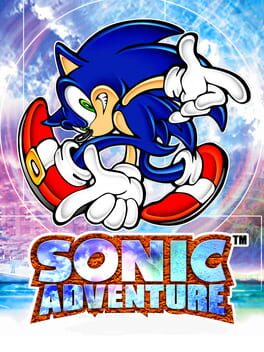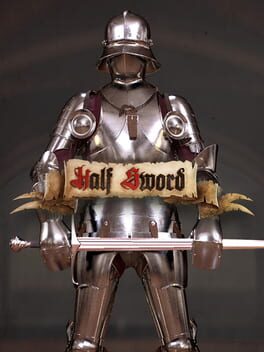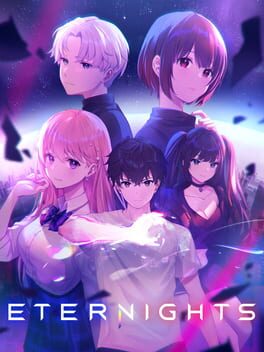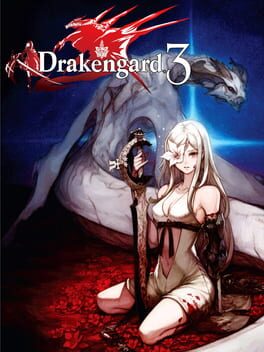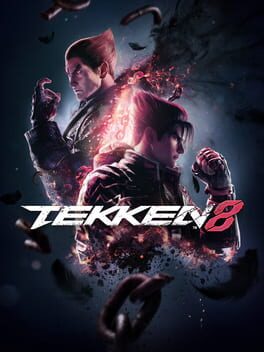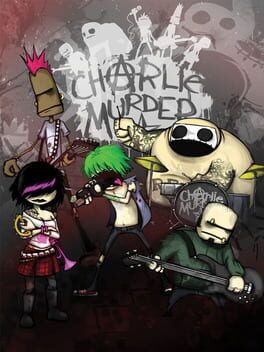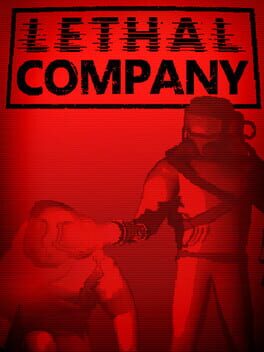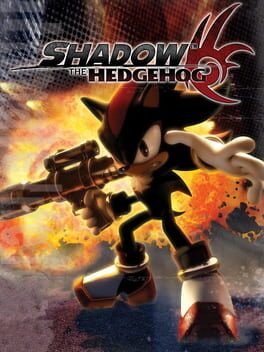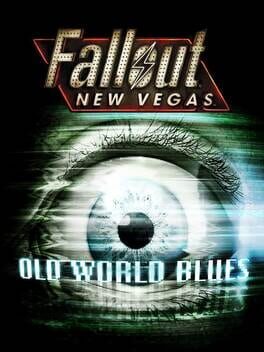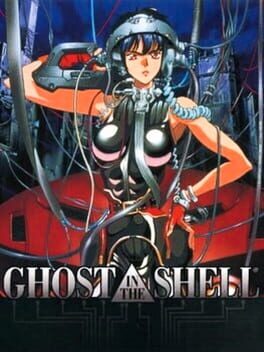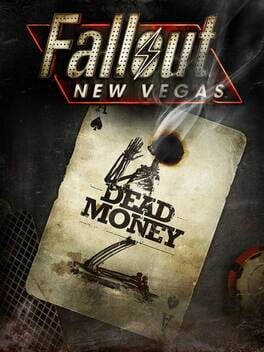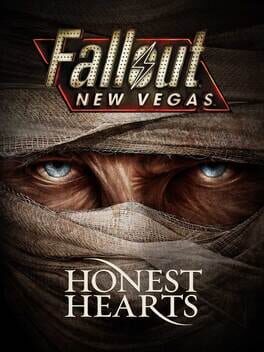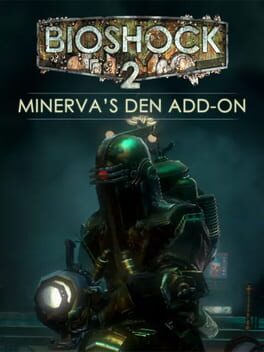straylight
1998
"sonic had a rough transition into 3d"
cool, weird-ass game that proudly wears its status as sega flexing its shit on the previous gen right upon its sleeve. the monolithic status this game has in the fandom and the historical context of sonic as an entity is pretty interesting to me considering there really isn't that much to it - ten solid sonic levels and then little fragments that more or less exist to flaunt the possibilities of the dreamcast and what all sega was capable of at that point. i'm really endeared by games of this era that were chock full of weird side content and minigames just to show what the fresh hardware was capable of (final fantasy x also comes to mind), and sonic adventure is maybe nothing BUT that. combine that with its weird atmosphere and bizarre, campy writing and it fits right up there with the pantheon of Weird PSX JRPGs of '99.
speaking of writing - i was surprised on a playthrough how this game basically doesn't have a story so much as it has a bunch of isolated events that happen in proximity to one another in an arbitrary and sort of staggered fashion. sonic's story may be the main draw here in terms of gameplay (and clearly the star of the show in general; he's the only one of the stories you can't knock out in an hour tops) but it's also the story where pretty much nothing of note happens. honestly as cute as tails and amy's little mini-character-arcs are the only story worth writing home about here is gamma's, which i still find really poignant and thought-provoking even as an adult... something fatalistic and genuinely dark about this power-hour of pathos, even in comparison to the really dire places that sonic adventure 2's writings and greater themes go. honestly gamma's just the best part of the game in general, between his story, his variant of hot shelter easily being the best level in the game, and the boss fight against beta being one of the game's very best. kinda wish i cared for drakengard 3 at all because i would KILL for a version of his general plot pitch that's not written for children
can't help but feel like some of these little stories deserved a bit more time in the oven; gamma's shooting gameplay and knuckles' hunting were both eventually expanded upon in SA2 but i really like the "puzzle platformer where the female protagonist has to avoid a creepy stalker" idea with amy's gameplay and how tails' levels take sonic's ethos of playing as little of the level as possible to their natural extreme... such a shame their stories take about 11 minutes apiece to complete.
definitely not as polished, focused, effortless or full of finesse as sonic adventure 2, but honestly i don't think being less Good in one linear direction makes it Bad in the opposite linear direction either. sonic adventure is a strange, curious, funky little game, and it's lovely for it.
cool, weird-ass game that proudly wears its status as sega flexing its shit on the previous gen right upon its sleeve. the monolithic status this game has in the fandom and the historical context of sonic as an entity is pretty interesting to me considering there really isn't that much to it - ten solid sonic levels and then little fragments that more or less exist to flaunt the possibilities of the dreamcast and what all sega was capable of at that point. i'm really endeared by games of this era that were chock full of weird side content and minigames just to show what the fresh hardware was capable of (final fantasy x also comes to mind), and sonic adventure is maybe nothing BUT that. combine that with its weird atmosphere and bizarre, campy writing and it fits right up there with the pantheon of Weird PSX JRPGs of '99.
speaking of writing - i was surprised on a playthrough how this game basically doesn't have a story so much as it has a bunch of isolated events that happen in proximity to one another in an arbitrary and sort of staggered fashion. sonic's story may be the main draw here in terms of gameplay (and clearly the star of the show in general; he's the only one of the stories you can't knock out in an hour tops) but it's also the story where pretty much nothing of note happens. honestly as cute as tails and amy's little mini-character-arcs are the only story worth writing home about here is gamma's, which i still find really poignant and thought-provoking even as an adult... something fatalistic and genuinely dark about this power-hour of pathos, even in comparison to the really dire places that sonic adventure 2's writings and greater themes go. honestly gamma's just the best part of the game in general, between his story, his variant of hot shelter easily being the best level in the game, and the boss fight against beta being one of the game's very best. kinda wish i cared for drakengard 3 at all because i would KILL for a version of his general plot pitch that's not written for children
can't help but feel like some of these little stories deserved a bit more time in the oven; gamma's shooting gameplay and knuckles' hunting were both eventually expanded upon in SA2 but i really like the "puzzle platformer where the female protagonist has to avoid a creepy stalker" idea with amy's gameplay and how tails' levels take sonic's ethos of playing as little of the level as possible to their natural extreme... such a shame their stories take about 11 minutes apiece to complete.
definitely not as polished, focused, effortless or full of finesse as sonic adventure 2, but honestly i don't think being less Good in one linear direction makes it Bad in the opposite linear direction either. sonic adventure is a strange, curious, funky little game, and it's lovely for it.
TBD
2023
2013
2001
they don't make them like this anymore, man. everything about final fantasy x bleeds unfettered confidence and an uncontrollable optimism for games as a medium of art and entertainment alike; not only did kitase and his posse clearly believe video games could Be More but they were doing everything in their power to make those dreams corporeal, to make the future of games become a "here and now" rather than some distant aspiration that video games could one day hope to touch. it's really funny how hallmark western titles like braid or the last of us that would come in the ballpark of a decade later were lauded as "games finally being art," or kojima's insistent and insensitive portrayals of sexual assault in metal gear solid v to apparently "validate" games as art suggest an insecurity in the form, a need to prove itself, when squaresoft in their prime knew games were something special and were putting in all the legwork they could to make people see that and had been doing that since the eighties.
though i treasure final fantasy xvi, i can't help but look at it as having fallen to the same insecurity i alluded to in the aforementioned western titles - which makes ffx's confidence in itself and celebration of its own achievements all the more commanding of respect and admiration. yoshi-p wanted a return to a more conventional fantasy setting so he neutered a lot of the whimsy and off-the-wall wackiness from final fantasy for a grim-and-grisly dark fantasy setting inspired by the hot-button fantasy stories of the era such as game of thrones and god of war. what did kitase do whenever his fanbase demanded a return to a traditional european fantasy setting? he acted in direct defiance of that and instead looked to the folklore, customs, cultures and traditions of east and southeast asia (in particular okinawa) and started from the ground up, sculpting every aspect of the game to make something unlike anything final fantasy had ever seen or would ever see again. that even bleeds into its storytelling - sure, final fantasy x gets a lot of flak as the "goofy" one due to tidus's infamous laugh (fuck you it's one of the best romance scenes in all of final fantasy) or its loud-and-proud nature as a product of the turn of the millenia, but i think this is probably final fantasy's most gripping and eloquent political narrative... even and especially in comparison to the more "serious" political final fantasy games such as tactics, xii and (again) xvi. while a lot of political narratives in jrpgs tend to more broadly broach abstract ideas about classism, imperialism and war, final fantasy x's politics are rooted firmly in okinawa's historical relationship with mainland japan and the ties therein with institutional religion in modern-day japan. it's an aggressively japanese game in just about every manner, to the point where i can't help but wonder if there's a tie between ffx being the laughingstock of the series in the mid-to-late 00s and the really racist hatred of japanese games in the west during the seventh console gen... hmm
speaking of the seventh gen and onward it feels like every single way that developers try to flex the power of their hardware and their grasp over it is just graphics, graphics, graphics, to the point where we're getting diminishing returns and the games just flatly don't look all that great because they're bereft of visual direction and identity. i'm not really gonna do much talking about x's graphics (although this is STILL probably one of the best-looking ps2 games, especially those fmvs - oh my god!)... again, compensating for something, forgetting what makes games what they are. like yeah, games are a medium of art capable of conveying powerful messages and emotions like any other medium, but games are fun too! and man, what a better way to flex the capabilities of the recently-launched playstation 2 by making final fantasy x a GAME's game on top of all the shit it has to say as a story. there's so much shit to do in this game, man. it seems like every other nook and cranny has some minigame, sidequest or post-game content for you to sink your teeth into, squaresoft just packing all this random bullshit into this game because they COULD. like fuck, did you know there's a butterfly hunting minigame in the macalania lake? i sure as hell didn't until this playthrough!
i can't help but mourn what games have become and the state of the industry over the past decade and some change. square enix is a shell of its former self between its unbelievably slimy business practices and the increasingly-cynical nature of its output and middling quality of its games. final fantasy x seems like a relic of a bygone era that we can never return to, a reminder of better times, and a testament to the potential that video games in the AAA sphere have broadly failed to live up to.
but - true to the game's main message - final fantasy x also acts as a reminder of what games can be, what we can hope for and expect out of games, and a reminder that games are not inherently as rotten as the industry nowadays would lead you to believe. who knows? i certainly don't, but i also don't want to just give up and accept the stagnation that games have broadly been reduced to, or resign myself that this spiral of cynical corporate product-pushing is all that there is.
and i don't have to, really. the glory days of the aaa sphere might be over, but making games (and sharing them) is easier than ever. the titans of tomorrow are getting their start now with nothing more than their passion for the medium and a desire to connect with people whose passion matches theirs. ultimately, that's what brings people together to begin with: shared convictions, shared faith, shared ideals and shared love for their favorite things in the world.
and when that love brings people together and unites them in a common belief, thus enabling them to exert their will upon the world at whatever scale their numbers and determination allow for... things change. isn't it wonderful?
though i treasure final fantasy xvi, i can't help but look at it as having fallen to the same insecurity i alluded to in the aforementioned western titles - which makes ffx's confidence in itself and celebration of its own achievements all the more commanding of respect and admiration. yoshi-p wanted a return to a more conventional fantasy setting so he neutered a lot of the whimsy and off-the-wall wackiness from final fantasy for a grim-and-grisly dark fantasy setting inspired by the hot-button fantasy stories of the era such as game of thrones and god of war. what did kitase do whenever his fanbase demanded a return to a traditional european fantasy setting? he acted in direct defiance of that and instead looked to the folklore, customs, cultures and traditions of east and southeast asia (in particular okinawa) and started from the ground up, sculpting every aspect of the game to make something unlike anything final fantasy had ever seen or would ever see again. that even bleeds into its storytelling - sure, final fantasy x gets a lot of flak as the "goofy" one due to tidus's infamous laugh (fuck you it's one of the best romance scenes in all of final fantasy) or its loud-and-proud nature as a product of the turn of the millenia, but i think this is probably final fantasy's most gripping and eloquent political narrative... even and especially in comparison to the more "serious" political final fantasy games such as tactics, xii and (again) xvi. while a lot of political narratives in jrpgs tend to more broadly broach abstract ideas about classism, imperialism and war, final fantasy x's politics are rooted firmly in okinawa's historical relationship with mainland japan and the ties therein with institutional religion in modern-day japan. it's an aggressively japanese game in just about every manner, to the point where i can't help but wonder if there's a tie between ffx being the laughingstock of the series in the mid-to-late 00s and the really racist hatred of japanese games in the west during the seventh console gen... hmm
speaking of the seventh gen and onward it feels like every single way that developers try to flex the power of their hardware and their grasp over it is just graphics, graphics, graphics, to the point where we're getting diminishing returns and the games just flatly don't look all that great because they're bereft of visual direction and identity. i'm not really gonna do much talking about x's graphics (although this is STILL probably one of the best-looking ps2 games, especially those fmvs - oh my god!)... again, compensating for something, forgetting what makes games what they are. like yeah, games are a medium of art capable of conveying powerful messages and emotions like any other medium, but games are fun too! and man, what a better way to flex the capabilities of the recently-launched playstation 2 by making final fantasy x a GAME's game on top of all the shit it has to say as a story. there's so much shit to do in this game, man. it seems like every other nook and cranny has some minigame, sidequest or post-game content for you to sink your teeth into, squaresoft just packing all this random bullshit into this game because they COULD. like fuck, did you know there's a butterfly hunting minigame in the macalania lake? i sure as hell didn't until this playthrough!
i can't help but mourn what games have become and the state of the industry over the past decade and some change. square enix is a shell of its former self between its unbelievably slimy business practices and the increasingly-cynical nature of its output and middling quality of its games. final fantasy x seems like a relic of a bygone era that we can never return to, a reminder of better times, and a testament to the potential that video games in the AAA sphere have broadly failed to live up to.
but - true to the game's main message - final fantasy x also acts as a reminder of what games can be, what we can hope for and expect out of games, and a reminder that games are not inherently as rotten as the industry nowadays would lead you to believe. who knows? i certainly don't, but i also don't want to just give up and accept the stagnation that games have broadly been reduced to, or resign myself that this spiral of cynical corporate product-pushing is all that there is.
and i don't have to, really. the glory days of the aaa sphere might be over, but making games (and sharing them) is easier than ever. the titans of tomorrow are getting their start now with nothing more than their passion for the medium and a desire to connect with people whose passion matches theirs. ultimately, that's what brings people together to begin with: shared convictions, shared faith, shared ideals and shared love for their favorite things in the world.
and when that love brings people together and unites them in a common belief, thus enabling them to exert their will upon the world at whatever scale their numbers and determination allow for... things change. isn't it wonderful?
2001
I have a more sympathetic view of James than I think most people do.
At the very least, I believe that my understanding of the game is less emphatic on his flaws and failings than an awful lot of the interpretations I’ve seen others form in fifteen-plus years of playing, thinking about and growing into Silent Hill 2. I also think a lot of these interpretations scrub out a lot of Mary’s worst traits and have a very one-dimensional view of the two’s marriage and relationship, especially given the all-too-great extent to which I can find myself in James’ shoes and understand just what being in the sorts of situations he’s been thrust into can do to you. This isn’t to say that I think Mary is outright an antagonistic figure, that she was necessarily an abusive partner, or that James’ reaction to that pressure coming to a head was justified, nor do I think James is necessarily an innocent or pure soul. I mean, let’s face it, Silent Hill 2 is a 12-hour manifesto about just how much James Sunderland sucks, but… Mary sucks, too. So does Angela. So does Eddie. So does Maria. So do I, and so do you. Don’t we all?
―――――――――――――――――――――――――――――
In spite of Silent Hill 2’s unapologetic and uncompromising portrayal of the rot within the souls of its cast, we’re never given reason to believe that these people necessarily have to be defined by their pain and the maladaptive manners in which it manifests. Not the banality of Americana left to decay nor a grindhouse of grisly guts-and-gore undercut the beating heart within each one of these individuals’ chests; if anything the desolate atmosphere and steady throughline of sorrow amplify the moments of kindness and connection even more.
James, for all of his single-minded spaciness and passive suicidal ideation, routinely makes an effort to treat the people he encounters with dignity and respect, and that effort is often reciprocated if not paid forward in its entirety — though Angela’s concern for James is largely rooted in bouts of self-depreciation and self-loathing, there is still a consistent pattern of the two wishing one another well as they part ways. Even Eddie, who seems to go out of his way to alienate everybody he meets so that he can be truly alone and therefore exempt from judgment, makes a point of awkwardly telling James to take care of himself after their first meeting. While Laura appears to be little more than a menace for much of the story’s runtime, even she pays James’ concern for her safety forward once it becomes clear that they have a common goal in the Lakeview Hotel.
Each of these people are suffering in their own way, and have convinced themselves for one reason or another that they must carry their burdens alone — even James, for all of his tendencies to try and support others where he can, insists on marching upon his chosen path in solitude where he can help it. But even then they appear to acknowledge that perhaps it’s better to be united through suffering, even temporarily and even through acts as evidently-insignificant as acknowledging one another’s hardship. Misery loves company, and even in the midst of a corporeal Hell each and every one of these people are willing to let their innate tendencies towards decency and understanding shine through even as they teeter upon the precipice of their own individual downward spirals. Their best traits and worst traits exist not as compartmentalized aspects that function in dichotomy to one another, but as two parts of a greater whole. They are human. They are people. Silent Hill 2 concerns itself more than perhaps anything else with this duality that exists in all people, the eternal conflict warring within between our best impulses and our worst impulses.
It’s only fitting, then, that each of these people have already let their worst traits win once, before the story even started. Angela, Eddie and most infamously James have all already taken a life before fleeing to Silent Hill, the darkness within them exacerbated and pushed to an irreconcilable breaking point by circumstances largely outside their control. Angela and Eddie are largely victims who were burdened with their worst traits by a lifetime of abuse at the hands of their family and peers respectively, whereas James’ more general negative personality traits and failings were ingrained by systemic prejudice and toxic ideals of manhood and men’s role in a relationship being strained by a marriage slowly falling apart over the course of three years. It isn’t their fault that they have these negative aspects, nobody is born bad (Laura perhaps represents this more than anybody; as a child she is inherently innocent and sees Silent Hill as a normal town for she has no darkness to exploit), but as unfair as the responsibility of keeping these traits in check might be it is a responsibility nonetheless.
As much as I think Angela’s family and (to a lesser extent) Eddie’s bullies had it coming — I am a full-faced proponent of victims’ right to revenge — I think most people would agree that you aren’t allowed to hurt the innocent people around you just because you have been hurt in turn, and that self-destruction often leaves little but a smoldering crater where a person once stood. Angela’s hostility towards James’ attempts at extending a hand (while understandable and outright justified considering James’ own sins and views of women) does little but dig her further into the hole that she was kicked down into as a little girl, and Eddie’s slow descent into serial murder makes him even more of a sinner than the bullies who pushed him to the brink to begin with. Both of these people are given chances to take steps to right their personal wrongs and make an effort to let their best traits emerge victorious, but eventually choose to spiral out and allow themselves to be consumed by their pain, sorrow and trauma. The story frames them with nothing but a level of empathy and respect still largely unseen in game narratives even to this day, and yet it remains frank and up-front about the simple truth of the matter: you cannot heal if you don’t choose to do so.
Where does that leave James, then? What is his role in Silent Hill 2’s portrayal of the eternal struggle between the good in us and the bad in us? His fate is in your hands. As in, you, the player’s.
You see, James is in a unique position compared to the rest of the cast. While he has a backstory, personality traits, characterization and dialogue that is wholly independent of player input, at the end of the day the choices he makes and the ways in which he carries forward in the face of despair are wholly up to the player. Silent Hill 2 actually isn’t a game about killing monsters and surviving in an environment born and bred for hostility. Konami’s been lying to you this entire time, the guns aren’t actually guns. Silent Hill 2 is a game about a man navigating the tightrope path to recovery and trying to make use of the resources presented to him to accept himself, heal, and let go. Will he make it to the other side, shaken and scarred but still breathing, or will he let himself fall and be sent into the depths below?
It’s all up to you.
―――――――――――――――――――――――――――――
You often see people talk about how Silent Hill 2 is actually a pretty easy game all things considered, more or less nixing the “survival” element of “survival horror” wholesale, and I’ve seen a lot of people make a connection between this and James’ apparent need to be coddled and supported unconditionally. I get where they’re coming from there, but I think that Silent Hill 2’s abundance of resources and player agency as far as minute-to-minute gameplay decisions serves a greater narrative purpose. I don’t mean to sound like an “it was all in his head” ass creepypasta dude here, but work with me: weapons and ammo aren’t actually weapons and ammo, health packs aren’t actually health packs, monsters aren’t actually monsters. These are manifestations of James’ ability to fend off negative impulses and the bad parts of himself rearing their head. These are manifestations of his ability to take care of himself and know how to healthily cope when he eventually falters and stumbles on the road to recovery and normality. These are dark thoughts and self-destructive ideations raising up from our subconscious to haunt us, always lurking in the shadows and ready to strike if we aren’t careful. Even Maria’s role as a literal sexual temptress, while certainly representing James’ idea of an ideal, perfect Mary and his desire for gratification battling with his need for catharsis and honesty with himself, embodies the idea that temptation and indulgence in negative thoughts and habits are a means by which we lose touch with the greater picture as far as our mental health goes.
After a point of stumbling around in the dark and eventually making use of whatever resources you can — medication, therapy, the support of friends and loved ones — you begin to get a feel for your own psyche and learn to know yourself, and you also know how to deal with problems when they come up. This is what Silent Hill 2’s gameplay loop is ultimately about, and why James’ minute-to-minute gameplay decisions influence the way his story ends up rather than compartmentalized routes or story choices like most games that play with the idea of multiple endings. If James fails to take care of himself and makes a point of letting his worst traits get the best of him over and over again, then it’s no surprise that his story ends with him viewing redemption as only coming through his own death. If he gives in to temptation and focuses on the wrong things to try and fill the void left by his trauma, he’ll end up stuck in the same situation and look for the wrong way out, repeating the cycle over and over again until something changes.
But — if James is smart, and careful, and puts in the work and effort to take care of himself and fight all of the rot inside him by using the resources and good habits he’s picked up along the way — he might not be able to really ever get better, but he can live with it. He can start to define himself by his best traits again. He can heal. He can look at all the pain that’s got him to where he is now, turn his back, and leave it all behind.
―――――――――――――――――――――――――――――
The greater Silent Hill fandom has found itself locked in arguments for years over which ending of Silent Hill 2 is canon, the “true” ending, or the one that the developers had in mind when crafting the rest of the story. I understand why — and I understand why people find the framing of Silent Hill 2 as a cautionary tale with the In Water ending compelling — but I think to view it all as a series of compartmentalized possibilities and not as individual parts of the same greater statement is cynical and dehumanizing at absolute best. Silent Hill 2 isn’t about one specific outcome of the duality within us all, but exploring the duality itself and how different people might struggle with it in different ways. At its barest core, it isn’t a game about healing, succumbing, or being trapped in self-perpetuating cycles — it is a game about the very act of struggling and the multitudes that this act encompasses. It understands what it means to grieve, to fear, to hurt, to hate, to decay. It understands what it means to relish, to rejoice, to love, to grow, to live. And it understands more than just about anything else in the world the spaces in the margins where these things meet, intersect, clash and struggle for power.
Myself, though, I have my preferences as far as how I like to view the story ending. I find myself in James’ shoes more and more often these days. It’s been a really rough eighteen months or so, man. It just keeps getting worse. Some of it is through circumstances out of my control, some of it is my own doing, but all of it is mine to deal with and mine to choose what to learn from. I’ve lived the selfish, petulant parts of James who doesn’t want anything more than to be loved unconditionally without concern for the people doing the loving. I’ve lived the same experiences as the James who puts his neck out for the people around him only to get bitten and drained dry in turn. I’ve done much the same as James when he lashes out and hurts people around him to try and make sense of his own pain. I’ve been in the same position of James where I have to let people take advantage of me by letting them hurt me and then acting as their solid rock of support immediately after. More often than not these days I’m the James that we see at the very beginning of his descent into Silent Hill: glass-eyed and empty of the spirit, moving on auto pilot as if not quite sure he’s really here to begin with.
But I don’t want to feel this way forever. I don’t think anybody does. Silent Hill 2 understands that, and it understands that getting better isn’t as easy as it might sound on paper. But I’m trying, man, I really am. I want to let the best parts of me prosper and emerge victorious over all of the worst parts of me. I want to return to the point where better days seem like they’re on the horizon and not twenty miles behind me.
And I want to one day be able to look at all of this that I’m experiencing, turn my back on it, and leave.
At the very least, I believe that my understanding of the game is less emphatic on his flaws and failings than an awful lot of the interpretations I’ve seen others form in fifteen-plus years of playing, thinking about and growing into Silent Hill 2. I also think a lot of these interpretations scrub out a lot of Mary’s worst traits and have a very one-dimensional view of the two’s marriage and relationship, especially given the all-too-great extent to which I can find myself in James’ shoes and understand just what being in the sorts of situations he’s been thrust into can do to you. This isn’t to say that I think Mary is outright an antagonistic figure, that she was necessarily an abusive partner, or that James’ reaction to that pressure coming to a head was justified, nor do I think James is necessarily an innocent or pure soul. I mean, let’s face it, Silent Hill 2 is a 12-hour manifesto about just how much James Sunderland sucks, but… Mary sucks, too. So does Angela. So does Eddie. So does Maria. So do I, and so do you. Don’t we all?
―――――――――――――――――――――――――――――
In spite of Silent Hill 2’s unapologetic and uncompromising portrayal of the rot within the souls of its cast, we’re never given reason to believe that these people necessarily have to be defined by their pain and the maladaptive manners in which it manifests. Not the banality of Americana left to decay nor a grindhouse of grisly guts-and-gore undercut the beating heart within each one of these individuals’ chests; if anything the desolate atmosphere and steady throughline of sorrow amplify the moments of kindness and connection even more.
James, for all of his single-minded spaciness and passive suicidal ideation, routinely makes an effort to treat the people he encounters with dignity and respect, and that effort is often reciprocated if not paid forward in its entirety — though Angela’s concern for James is largely rooted in bouts of self-depreciation and self-loathing, there is still a consistent pattern of the two wishing one another well as they part ways. Even Eddie, who seems to go out of his way to alienate everybody he meets so that he can be truly alone and therefore exempt from judgment, makes a point of awkwardly telling James to take care of himself after their first meeting. While Laura appears to be little more than a menace for much of the story’s runtime, even she pays James’ concern for her safety forward once it becomes clear that they have a common goal in the Lakeview Hotel.
Each of these people are suffering in their own way, and have convinced themselves for one reason or another that they must carry their burdens alone — even James, for all of his tendencies to try and support others where he can, insists on marching upon his chosen path in solitude where he can help it. But even then they appear to acknowledge that perhaps it’s better to be united through suffering, even temporarily and even through acts as evidently-insignificant as acknowledging one another’s hardship. Misery loves company, and even in the midst of a corporeal Hell each and every one of these people are willing to let their innate tendencies towards decency and understanding shine through even as they teeter upon the precipice of their own individual downward spirals. Their best traits and worst traits exist not as compartmentalized aspects that function in dichotomy to one another, but as two parts of a greater whole. They are human. They are people. Silent Hill 2 concerns itself more than perhaps anything else with this duality that exists in all people, the eternal conflict warring within between our best impulses and our worst impulses.
It’s only fitting, then, that each of these people have already let their worst traits win once, before the story even started. Angela, Eddie and most infamously James have all already taken a life before fleeing to Silent Hill, the darkness within them exacerbated and pushed to an irreconcilable breaking point by circumstances largely outside their control. Angela and Eddie are largely victims who were burdened with their worst traits by a lifetime of abuse at the hands of their family and peers respectively, whereas James’ more general negative personality traits and failings were ingrained by systemic prejudice and toxic ideals of manhood and men’s role in a relationship being strained by a marriage slowly falling apart over the course of three years. It isn’t their fault that they have these negative aspects, nobody is born bad (Laura perhaps represents this more than anybody; as a child she is inherently innocent and sees Silent Hill as a normal town for she has no darkness to exploit), but as unfair as the responsibility of keeping these traits in check might be it is a responsibility nonetheless.
As much as I think Angela’s family and (to a lesser extent) Eddie’s bullies had it coming — I am a full-faced proponent of victims’ right to revenge — I think most people would agree that you aren’t allowed to hurt the innocent people around you just because you have been hurt in turn, and that self-destruction often leaves little but a smoldering crater where a person once stood. Angela’s hostility towards James’ attempts at extending a hand (while understandable and outright justified considering James’ own sins and views of women) does little but dig her further into the hole that she was kicked down into as a little girl, and Eddie’s slow descent into serial murder makes him even more of a sinner than the bullies who pushed him to the brink to begin with. Both of these people are given chances to take steps to right their personal wrongs and make an effort to let their best traits emerge victorious, but eventually choose to spiral out and allow themselves to be consumed by their pain, sorrow and trauma. The story frames them with nothing but a level of empathy and respect still largely unseen in game narratives even to this day, and yet it remains frank and up-front about the simple truth of the matter: you cannot heal if you don’t choose to do so.
Where does that leave James, then? What is his role in Silent Hill 2’s portrayal of the eternal struggle between the good in us and the bad in us? His fate is in your hands. As in, you, the player’s.
You see, James is in a unique position compared to the rest of the cast. While he has a backstory, personality traits, characterization and dialogue that is wholly independent of player input, at the end of the day the choices he makes and the ways in which he carries forward in the face of despair are wholly up to the player. Silent Hill 2 actually isn’t a game about killing monsters and surviving in an environment born and bred for hostility. Konami’s been lying to you this entire time, the guns aren’t actually guns. Silent Hill 2 is a game about a man navigating the tightrope path to recovery and trying to make use of the resources presented to him to accept himself, heal, and let go. Will he make it to the other side, shaken and scarred but still breathing, or will he let himself fall and be sent into the depths below?
It’s all up to you.
―――――――――――――――――――――――――――――
You often see people talk about how Silent Hill 2 is actually a pretty easy game all things considered, more or less nixing the “survival” element of “survival horror” wholesale, and I’ve seen a lot of people make a connection between this and James’ apparent need to be coddled and supported unconditionally. I get where they’re coming from there, but I think that Silent Hill 2’s abundance of resources and player agency as far as minute-to-minute gameplay decisions serves a greater narrative purpose. I don’t mean to sound like an “it was all in his head” ass creepypasta dude here, but work with me: weapons and ammo aren’t actually weapons and ammo, health packs aren’t actually health packs, monsters aren’t actually monsters. These are manifestations of James’ ability to fend off negative impulses and the bad parts of himself rearing their head. These are manifestations of his ability to take care of himself and know how to healthily cope when he eventually falters and stumbles on the road to recovery and normality. These are dark thoughts and self-destructive ideations raising up from our subconscious to haunt us, always lurking in the shadows and ready to strike if we aren’t careful. Even Maria’s role as a literal sexual temptress, while certainly representing James’ idea of an ideal, perfect Mary and his desire for gratification battling with his need for catharsis and honesty with himself, embodies the idea that temptation and indulgence in negative thoughts and habits are a means by which we lose touch with the greater picture as far as our mental health goes.
After a point of stumbling around in the dark and eventually making use of whatever resources you can — medication, therapy, the support of friends and loved ones — you begin to get a feel for your own psyche and learn to know yourself, and you also know how to deal with problems when they come up. This is what Silent Hill 2’s gameplay loop is ultimately about, and why James’ minute-to-minute gameplay decisions influence the way his story ends up rather than compartmentalized routes or story choices like most games that play with the idea of multiple endings. If James fails to take care of himself and makes a point of letting his worst traits get the best of him over and over again, then it’s no surprise that his story ends with him viewing redemption as only coming through his own death. If he gives in to temptation and focuses on the wrong things to try and fill the void left by his trauma, he’ll end up stuck in the same situation and look for the wrong way out, repeating the cycle over and over again until something changes.
But — if James is smart, and careful, and puts in the work and effort to take care of himself and fight all of the rot inside him by using the resources and good habits he’s picked up along the way — he might not be able to really ever get better, but he can live with it. He can start to define himself by his best traits again. He can heal. He can look at all the pain that’s got him to where he is now, turn his back, and leave it all behind.
―――――――――――――――――――――――――――――
The greater Silent Hill fandom has found itself locked in arguments for years over which ending of Silent Hill 2 is canon, the “true” ending, or the one that the developers had in mind when crafting the rest of the story. I understand why — and I understand why people find the framing of Silent Hill 2 as a cautionary tale with the In Water ending compelling — but I think to view it all as a series of compartmentalized possibilities and not as individual parts of the same greater statement is cynical and dehumanizing at absolute best. Silent Hill 2 isn’t about one specific outcome of the duality within us all, but exploring the duality itself and how different people might struggle with it in different ways. At its barest core, it isn’t a game about healing, succumbing, or being trapped in self-perpetuating cycles — it is a game about the very act of struggling and the multitudes that this act encompasses. It understands what it means to grieve, to fear, to hurt, to hate, to decay. It understands what it means to relish, to rejoice, to love, to grow, to live. And it understands more than just about anything else in the world the spaces in the margins where these things meet, intersect, clash and struggle for power.
Myself, though, I have my preferences as far as how I like to view the story ending. I find myself in James’ shoes more and more often these days. It’s been a really rough eighteen months or so, man. It just keeps getting worse. Some of it is through circumstances out of my control, some of it is my own doing, but all of it is mine to deal with and mine to choose what to learn from. I’ve lived the selfish, petulant parts of James who doesn’t want anything more than to be loved unconditionally without concern for the people doing the loving. I’ve lived the same experiences as the James who puts his neck out for the people around him only to get bitten and drained dry in turn. I’ve done much the same as James when he lashes out and hurts people around him to try and make sense of his own pain. I’ve been in the same position of James where I have to let people take advantage of me by letting them hurt me and then acting as their solid rock of support immediately after. More often than not these days I’m the James that we see at the very beginning of his descent into Silent Hill: glass-eyed and empty of the spirit, moving on auto pilot as if not quite sure he’s really here to begin with.
But I don’t want to feel this way forever. I don’t think anybody does. Silent Hill 2 understands that, and it understands that getting better isn’t as easy as it might sound on paper. But I’m trying, man, I really am. I want to let the best parts of me prosper and emerge victorious over all of the worst parts of me. I want to return to the point where better days seem like they’re on the horizon and not twenty miles behind me.
And I want to one day be able to look at all of this that I’m experiencing, turn my back on it, and leave.
2024
This review contains spoilers
last night a terf went on a tangent at me about how headcanoning reina as trans is misogynistic or something because of the devil gene historically only being inherited by men and because, by their logic, transfemininity = maleness so that's what i'm always gonna think about when i think of this game for the rest of time
2013
2023
2005
1997
pretty solid as far as writing goes; characters are really charming and i think it's a neat little microcosm of what fallout as a series (that is to say, the proper trilogy of 1/2/NV) has always been trying to say. atmosphere is fantastic especially in the first half, they do a pretty impressive job of turning new vegas into a solid enough survival horror.
shit takes a harsh downturn once you get into the casino though; the puzzle-centric gameplay is really just one railroad after another of frustrating puzzles that aren't helped by the engine clearly not being predisposed towards that sort of gameplay... especially since one of the most clever ludonarrative tricks is so easily cheesed and bypassed
shit takes a harsh downturn once you get into the casino though; the puzzle-centric gameplay is really just one railroad after another of frustrating puzzles that aren't helped by the engine clearly not being predisposed towards that sort of gameplay... especially since one of the most clever ludonarrative tricks is so easily cheesed and bypassed
way less of a white savior narrative than i was expecting; it's just self-aware and candid about the fact that the conflict was birthed by joshua and daniel's presence enough to avoid veering off into complete cartoonishness. even so, the dlc is way too brief to really do most of its ideas any real justice or feel completely level-headed about the topics it intends to dissect - a shame since you'd expect joshua in particular to get more screentime and focus considering what a titan he is in new vegas' lore.
that said i'd still become a good mormon housewife for him
that said i'd still become a good mormon housewife for him
Pretty good! I definitely understand why people who didn't care much for BioShock 2 on launch consider Minerva's Den to be the best part of the game; the writing really reminds me of the writing in the original BioShock insofar as it's more driven by the philosophical aspects and (at least at first glance) less focused on Sigma as a character. The gameplay, being a lot more focused on exploration and emphatic on non-linear level layouts, is probably the closest to System Shock that BioShock ever got - and the new additions to the roster of weapons and enemies are all really fun, though while I found finding weapons in a different order from the base game to be fun it really screws with your muscle memory to not have the weapons be bound to the same keys (especially utility weapons like the hack tool).
Unfortunately what makes BioShock 2 really special is its writing and the player's agency with regards to the way the story and gameplay intersect, and since you don't have a dynamic bond like Delta and Eleanor that's basically completely missing from Minerva's Den. I also feel like what story we have could have used some more time to flesh things out a little more and get us more invested, or at least have Milton play a prominent role in the base game via audio logs or something so we have an investment in his story from the get-go. Additionally I was a little disappointed to see how small of a role Tenenbaum plays here, since she's a big favorite of mine and I went into this knowing that it follows the story of her return only for her to only appear at the beginning and end.
Side note: really cool to see a black lead character (and protagonist) in this series. Comes as a pleasant surprise since BioShock as a series has never had the greatest reputation for its diversity or the way it treats people of color.
Unfortunately what makes BioShock 2 really special is its writing and the player's agency with regards to the way the story and gameplay intersect, and since you don't have a dynamic bond like Delta and Eleanor that's basically completely missing from Minerva's Den. I also feel like what story we have could have used some more time to flesh things out a little more and get us more invested, or at least have Milton play a prominent role in the base game via audio logs or something so we have an investment in his story from the get-go. Additionally I was a little disappointed to see how small of a role Tenenbaum plays here, since she's a big favorite of mine and I went into this knowing that it follows the story of her return only for her to only appear at the beginning and end.
Side note: really cool to see a black lead character (and protagonist) in this series. Comes as a pleasant surprise since BioShock as a series has never had the greatest reputation for its diversity or the way it treats people of color.
